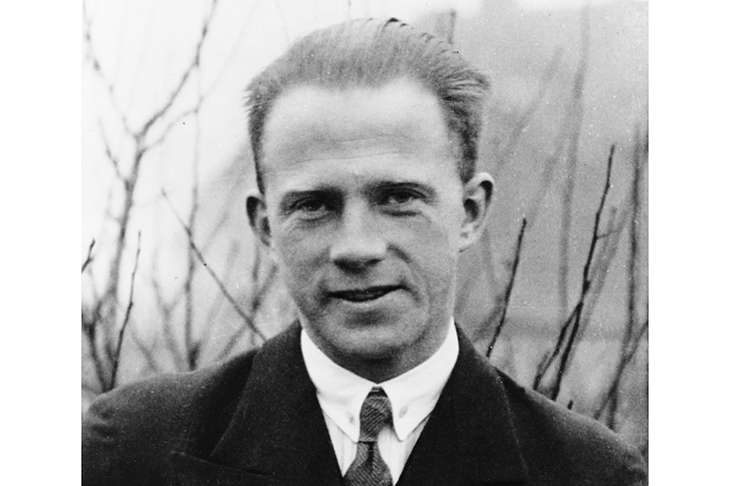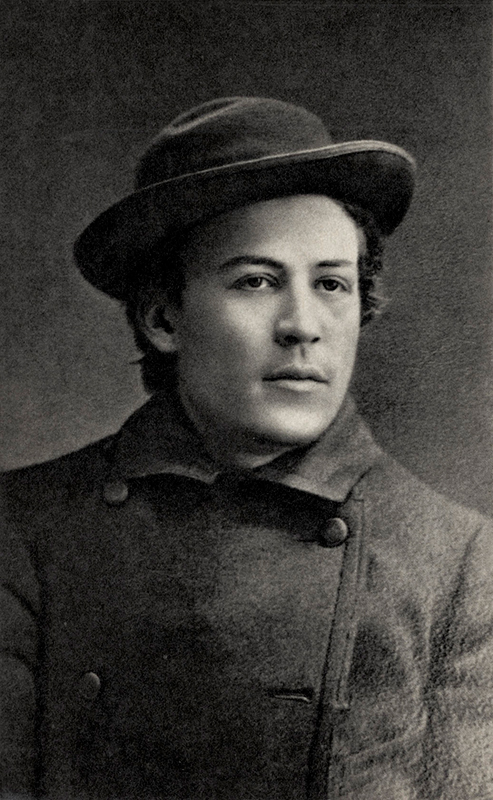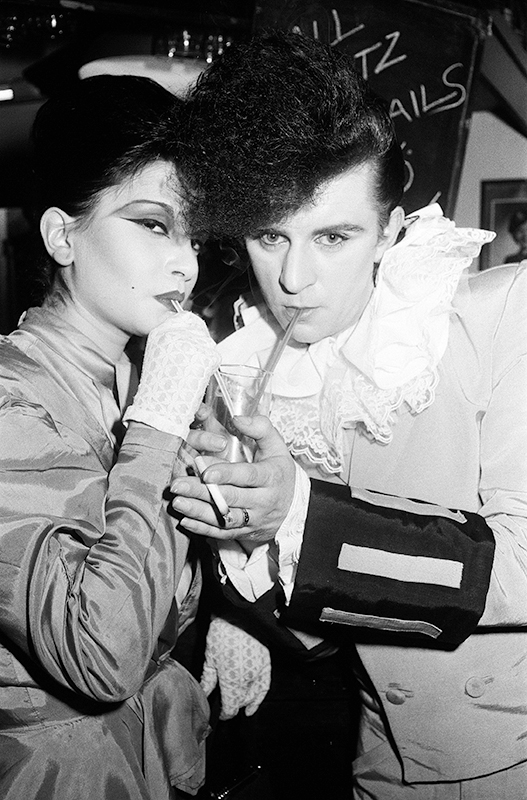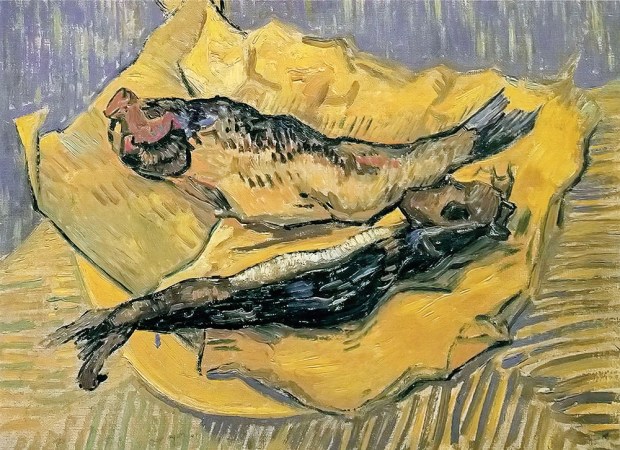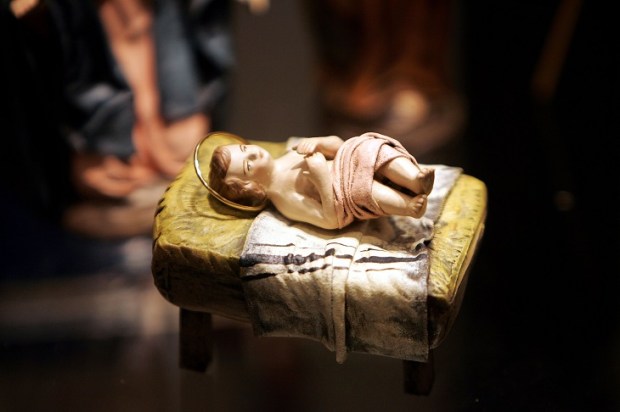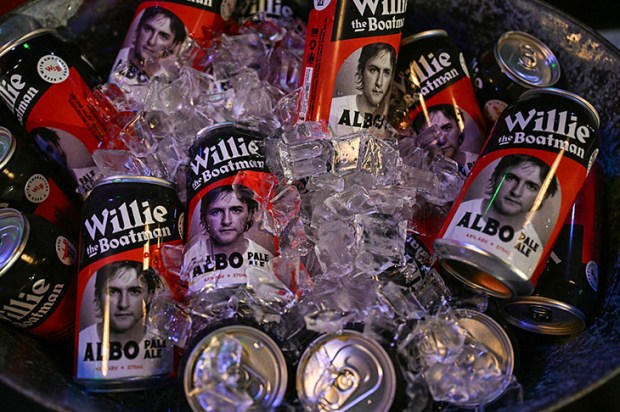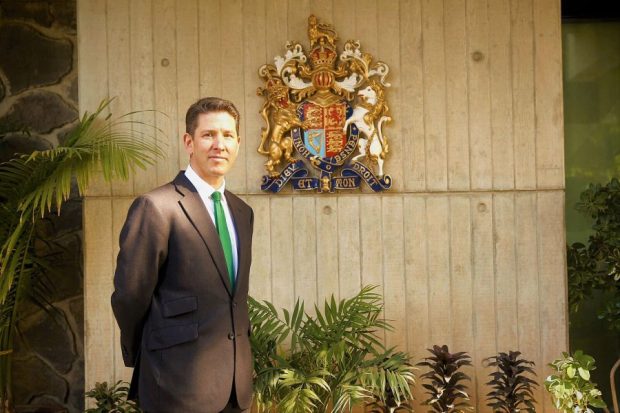Helgoland is a craggy German island in the North Sea. Barely bigger than a few fields, it reaches high above the water on precipitous cliffs and is famous for its sweet air. It has a town and a harbour, and the 1,000-odd inhabitants speak a distinct dialect. In the summer of 1925, the 23-year-old physicist Werner Heisenberg went there to sort out his
hay fever and solve the problem of reality.
Helgoland is a slightly misleading title for Carlo Rovelli’s inspiring, chaotic, delightfully unsatisfactory book of popular quantum physics. It isn’t about Heisenberg’s months there or his mathematical insights; ‘Helgoland’ is Rovelli’s shorthand for Heisenberg’s pellucid state of mind. On Helgoland, says Rovelli, Heisenberg almost got the philosophical approach to quantum theory right. Ever since, we’ve been getting it wrong.
The discovery of a quantum world began with experimental results. Certain things were taking place in German physics labs that should not be. Atoms were misbehaving. When scientists in Göttingen and Berlin crouched in front of the latest clever electronic instruments and peered, Alice-like, into the wonderland of the very small, what they saw shocked them bolt upright. Wonderland was ridiculous. There, logic was (and still is) fundamentally different.
Translated up to our size, the following nonsense was apparently perfectly possible: throw a full tankard across the hall in a Bierstube, let somebody notice (as it passes overhead) that this tankard has, say, a picture of a stag on it, and the beer inside turns green. That simple observation — ‘hey, look, there’s a stag on the tankard’ — and ping! the contents of the mug changes colour. But if nobody notices the decoration, the beer stays brown. In the quantum world, two defining qualities that have nothing to do with each other (tankard decoration and beer colour) can influence one another just because somebody’s looked at them. It’s a place for hucksters, not respectable people. Even Einstein, who got his Nobel Prize for figuring out the existence of this strange new world, was appalled: ‘God does not play dice!’ he said. ‘Don’t you tell God what to do,’ retorted the Danish theoretician Niels Bohr, who was less prudish.
Heisenberg worked for Bohr, and on Helgoland started to make sense of this wayward behaviour of small things. The central point was, he discovered, that everything in quantum land works with exactly the same logic as it does up here except in one particular: the order in which you look at things matters. In the quantum world, if the observer had only kept his mind focused on the beer, and paid no attention to the pretty decoration, it would have stayed brown. Some physicists tried to get round the metaphysical implications of this idea by insisting that there were hidden things secretly linking the subatomic equivalents of beer colour and mug decoration. Others have given up all pretence of common sense and believe ideas much more outlandish than God, such as the existence of multiple worlds in which all possible beer mug decorations and beer colours get to exist somewhere, really and truly, all at once.
Rovelli has a different idea. He says reality doesn’t exist. The reason physicists have been led astray by bonkers theories in the 100 years since Helgoland is because they can’t bear the thought of not being real.
It was at this point — a third of the way through the book — that I mimicked Heisenberg and took my first long, befuddled walk. Reality doesn’t exist? What on earth does that mean? Rovelli’s favourite example is a red chair. ‘Red’ doesn’t exist, for sure — everyone knows that philosophical chestnut: it’s just the way our brains make sense of light of a certain wavelength. But Rovelli also insists that nothing else about the chair exists either — its weight, its shape — except in its relationship to the person looking at it. And you can keep banging away at this type of argument until you get to the level of the atoms forming the chair. Insisting that anything about this red chair needs to exist outside of relationships is metaphysical neediness.
Part of the fun of Rovelli’s book is that your immediate reaction to his ideas — repugnance or delight — isn’t meaningless. Without mathematics or experiment, by page 81 your thoughts are at the frontier of quantum theory, and it’s time for your second brain-cudgeling walk. If things exist only by virtue of their interaction with other things, what happens to them between times? Do they vanish? Do instants of time also not exist? Does it even make sense to talk this way? Oh dear, oh dear.
Rovelli devotes a precious chapter to the work of the second-century Buddhist philosopher Nagarjuna, who also insists there is no ultimate layer of real things. Another chapter — 15 pages, getting on for a tenth of this short book — is as unexpected as green beer: it’s about a fierce philosophical argument Lenin had in 1909 with Aleksandr Bogdanov, the co-founder of the Bolshevik party.
‘I have digressed,’ says Rovelli, once this exuberant and not particularly helpful passage is over, then promptly tips off the other side of his bar stool and quotes Douglas Adams:
The fact that we live at the bottom of a deep gravity well, on the surface of a gas-covered planet going around a nuclear fireball 90 million miles away and think this to be normal is obviously some indication of how skewed our perspective tends to be.
In other words, it’s our skewed perspective, not the scientific evidence, that makes us want to believe in the reality of red chairs and atoms.
Rovelli is not a kook. He’s a world-famous professor of quantum gravity. His ‘relational interpretation’ of quantum theory is discussed seriously by leading philosophers and physicists. He’s ebullient about his ideas, not crazed by them. He doesn’t do a particularly good job of describing in layman’s terms the fundamental oddity of quantum theory — he’s too easily distracted and too poetical; his metaphors are a little too breathless. But that shouldn’t put you off. Do what I did after my third Helgoland walk: read the opening pages of Leonard Susskind’s superb popular science book Quantum Mechanics: The Theoretical Minimum. Anybody who can use fractions can understand them. Then set back to work with Helgoland. What follows is joyous excitement.
It feels exactly right that Rovelli teaches at the University of Marseille. In the same spirit as he’s written this book, I imagine him strolling along the quai, his sleeves rolled up, hailing the devil-may-care crowd by the boats and then, with a quick glance to either side, slipping into that crazy little bar where the tankards are flying and the beer turns green if you look at it funny.
Got something to add? Join the discussion and comment below.
You might disagree with half of it, but you’ll enjoy reading all of it. Try your first month for free, then just $2 a week for the remainder of your first year.

